On the Garub plains in south-western Namibia, the future of a population of wild horses hangs in the balance

There’s little that compares to the sight of a wild horse thundering to the waterhole on the Garub plains of Namibia, mane flying, dust exploding around its hooves. For more than a century, these horses known as the Namibs have lived in the Namib-Naukluft Park between Aus and Lüderitz, but survival in the Namib Desert is no easy feat.
They have adapted their behaviour and endured (with a little help from their friends) the continual cycle of droughts that keeps their numbers down and tempers their gene pool – the cycle of abundance and drought is a natural part of life in the desert.
But the last few years have brought another challenge that has left them hovering on the brink of extinction. At Garub, I meet up with wild-horse expert Telané Greyling, doctor of zoology, to hear how they are faring.
I arrive mid-year, when the five-year drought has finally broken and 40 millimetres of rain has collected in rock pools and sunk into the bleached sand. I cannot wish for a more auspicious time for my visit. As we drive along the back roads, Telané stops whenever she sees horses, identifying them through binocs. We climb out of the vehicle, surveying the surroundings from a clump of granite.
“That’s Richard,” she says when she spots the stallion grazing in the distance. I realise that, after almost three decades of studying the horses, Telané can identify every horse, and has named all of them. “The Namibs comprise family groups that range from around two to ten individuals, and bachelor stallions.”
For her master’s degree in 1994, she studied the behavioural ecology of these wild horses, researching the size of the family groups, group dynamics, what the horses eat and how often they drink, which yields fascinating information as to how a population of horses lives when not in a domestic setting.
Diese Geschichte stammt aus der January 2019-Ausgabe von SA Country Life.
Starten Sie Ihre 7-tägige kostenlose Testversion von Magzter GOLD, um auf Tausende kuratierte Premium-Storys sowie über 8.000 Zeitschriften und Zeitungen zuzugreifen.
Bereits Abonnent ? Anmelden
Diese Geschichte stammt aus der January 2019-Ausgabe von SA Country Life.
Starten Sie Ihre 7-tägige kostenlose Testversion von Magzter GOLD, um auf Tausende kuratierte Premium-Storys sowie über 8.000 Zeitschriften und Zeitungen zuzugreifen.
Bereits Abonnent? Anmelden

The Little Car That Could
The new Hyundai Atos is proof that budget-friendly vehicles can be fun
Cowboys Never Cry
GEORGE ROBEY rides the range outside Ficksburg with one of Africa’s great cowboys
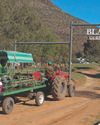
Family Stays
Make some beautiful memories at one of these countryside getaways
Art from the Heart
Watching blacksmiths at the forge, painters at the easel, cabinet makers at the chisel, and wandering the woods with a famous calligrapher in small, bespoke gatherings is what the Prince Albert Open Studios project is all about
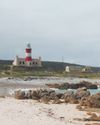
Lighthouse Over Yonder
A shipwreck road trip from Bredasdorp to Danger Point is a fine way to spend a day drifting over the Agulhas plain
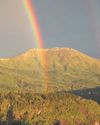
Up and Away In The Amatolas
A burgeoning settlement of people enjoys the good life among the mountains, mists and forests of Hogsback
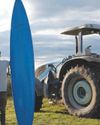
The Salt Shepherd
ALAN VAN GYSEN finds out how a farm boy the Vleesbaai skaaplande became as dedicated to big waves as he is to sheep
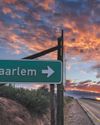
Time Holds on Longer Here
Do not blink as you take the R62 that runs through the Eastern Cape Langkloof, warns OBIE OBERHOLZER. You might miss the strip of tar to the tranquil village of Haarlem
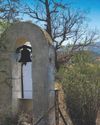
Place of Refuge
People have been escaping to the remote Winterberg mountains in the Eastern Cape for hundreds of years, writes MARION WHITEHEAD
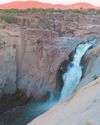
The Place Of Roaring Water
In Augrabies Falls National Park, cultural projects are creating a thunder akin to the mighty Orange as it plummets into its famous gorge